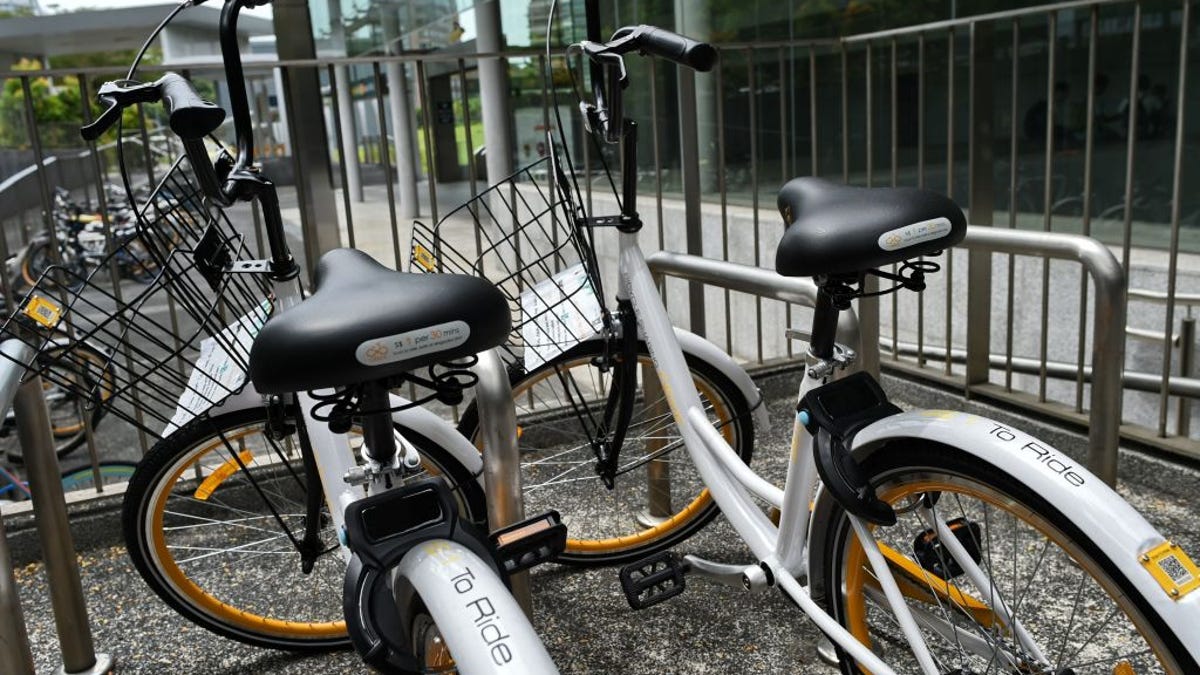I broke up with bike sharing after one horrible crash
Commentary: My love affair with bike sharing was an emotional roller coaster ride that crashed.

I've never liked walking long distances -- not in Singapore's humid weather. So when bike-sharing services launched, I was excited. My savior for Pokemon Go hunts finally came knocking at my door.
Besides the convenience and less humid circumstances, bike-sharing apps are a budget-friendly option for those stuck in "too far to walk but too near for Uber " situations. This is especially true in countries where cyclists don't have to return the bikes to designated docks. In Singapore for instance, bike-sharing operators Ofo, Mobike and oBike don't require bikes to be parked at specific locations after use. Ofo and Mobike adopt the same dockless system from their home country, China.
The concept is definitely not new. Bike sharing first launched in Amsterdam in 1965, though the program shut down within days due to bike misuse -- bikes were dumped into canals or stolen. The problems are still there today, but app-enhanced bike sharing looks promising.
More than 2 million bikes around the world are available for public use today from the end of 2016. The number is almost double that of 2015. On an 850-meter (about half a mile) walk to the subway station, I passed by a total of three bikes from Ofo and oBike.
So is this newfangled bike sharing poised to become the next Uber? We strapped on our cycling helmets to find out.
Love at first sight
The first step was to register. This sounded simple, but proved troublesome. There were problems with SMS verification on the Mobike app and all three apps crashed. Not a good start, but my hopes remained high.
Once I was registered on Singapore's three available bike-sharing apps, I went about locating a bike. Again, simple in theory, but in practice the process was reminiscent of my Poke-hunts for an elusive Snorlax.
The biggest trouble is you aren't always able to find a bike. Ofo doesn't have a GPS system that allows you to locate bikes on the app, but even with GPS integration on the Mobike and oBike apps, the bikes weren't at their supposed locations.
The bike pictured was reported to oBike, but I've yet to hear back.
Complaints pertaining to "ghost" bikes -- bikes that cannot be located despite showing up on an app's map -- appear fairly common. Some have also raised the issue of faulty bikes, such as those that wouldn't unlock. I spent an hour hunting down an oBike; out of the 10 I tried, seven wouldn't unlock, one had a broken seat and another had a damaged front wheel.
Unlocking the bikes (when they work) proved to be the easiest step and far more convenient than the conventional chain and lock. All you had to do was make sure your phone's Bluetooth was turned on, scan the QR code on the bike so the lock clicks open and you were set to go.
Bad romance
Riding the oBike for the first time made me feel like Hercules wrestling the Nemean Lion. Forget going after Pokemon, this was about survival.
Unfortunately, the oBike eventually won. I crashed while trying to save my S7 Edge from slipping through the huge gaps in the bike basket. Thankfully the phone survived, though I couldn't say the same for my knee.
It was clear by then that the oBike was not for everyone. At 20 kilograms (about 44 pounds) and almost half my weight, the oBike is much heavier than what I've been used to. And as it turns out, I wasn't alone:
Some oBike users have taken to Google's Play store to reflect that the bikes are heavy.
But what may seem detrimental to user experience is actually a deliberate choice on oBike's end. oBike's general manager Elgin Ee told me that the weight is one measure the company has taken to deter theft.
oBike is not alone in its attempts to counter theft (and vandalism). Other moves by bike sharing companies include reward-penalty systems as well as getting staff to monitor the condition and whereabouts of the bikes via GPS round the clock.
It's not me, it's you
After an hour of my tumultuous ride, I locked the bike and left it at the bike park next to a mall for a quick drink. When I returned -- you guessed it -- none of the oBikes at the bike park would unlock. I didn't want to spend more time searching for a functioning bike, so I shrugged my shoulders and rewarded myself with a comfy, air-conditioned bus ride home.
I checked in with oBike about being unable to unlock some of its bikes following the disastrous ride; oBike's Ee said the company would try to better educate customers on how to unlock its bikes. So there's that. The company has also introduced updates to its app, but the problem doesn't seem to have been solved.
It could have been love
I didn't expect to fall head over heels in love right from the get-go, but having given the bikes four tries, I don't think I ever will. Perhaps bike sharing will take off (it's hugely successful in China), but its present unwieldy form makes using it a pain in the butt. And knees. Especially the knees, actually.
I wanted to love it because it sounded like a godsend for my Pokemon trips, but crashing once was more than enough. For now, investing in an e-scooter looks like a better option.
Logging Out: Welcome to the crossroads of online life and the afterlife.
Technically Incorrect: Bringing you a fresh and irreverent take on tech.

